
Many control product manufacturers offer these downloadable ‘EDS files’ for peripheral equipment, but what exactly is an EDS, and how can they aid in the…
Many control product manufacturers offer these downloadable ‘EDS files’ for peripheral equipment, but what exactly is an EDS, and how can they aid in the development of a project?
Coil, field winding, rotor, stator, eddy current… When it comes to motors, there are numerous terms that describe the…
Coil, field winding, rotor, stator, eddy current… When it comes to motors, there are numerous terms that describe the theory of operation, but what is inside a 3-phase motor? Take a look, and learn how they work.
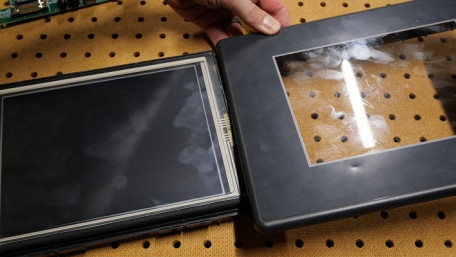
Human-machine interfaces, or HMIs, provide visual process data and allow access to process parameters and diagnostics…
Human-machine interfaces, or HMIs, provide visual process data and allow access to process parameters and diagnostics information. What’s inside these touchscreen displays, and how do they actually work?
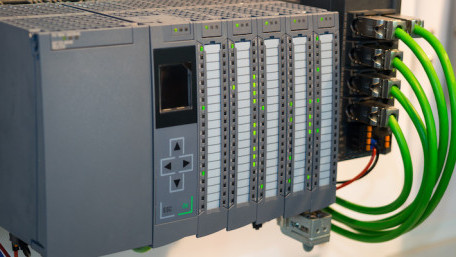
Learn how to make complex calculations for validating data easily with the STD instruction, and learn how to display…
Learn how to make complex calculations for validating data easily with the STD instruction, and learn how to display array sizes programmatically with the SIZE instruction.
Air power drives a lot of modern equipment. Robot grippers, ejectors, actuators, and rotary tables are just a few of the…
Air power drives a lot of modern equipment. Robot grippers, ejectors, actuators, and rotary tables are just a few of the devices controlled by air. What’s inside those banks of solenoid valves, and how do they work?
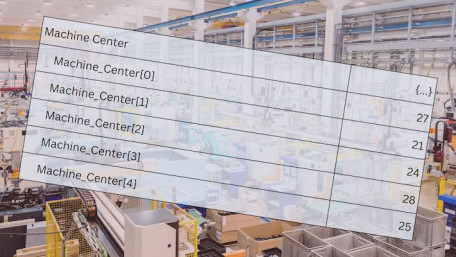
Learn how to streamline your ladder logic by searching and sorting arrays with the FSC and SRT instructions in the…
Learn how to streamline your ladder logic by searching and sorting arrays with the FSC and SRT instructions in the Rockwell (Allen-Bradley) Studio 5000 programming software.
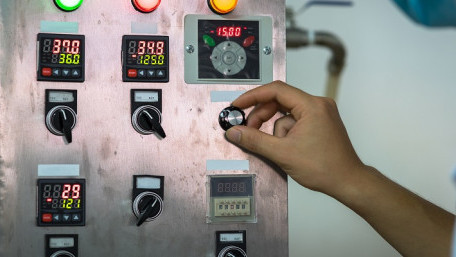
With precise control abilities to manage speed, torque, and direction, variable frequency drives remain one of the most…
With precise control abilities to manage speed, torque, and direction, variable frequency drives remain one of the most common methods of driving 3-phase industrial motors. Below, we introduce a few leading VFD manufacturers.
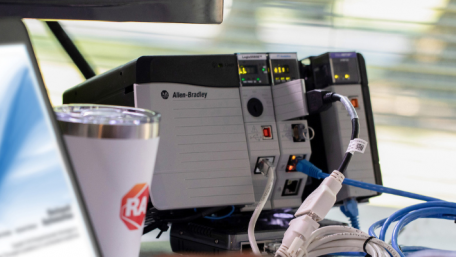
Arrays can streamline data storage and math operations, but they can be difficult to understand for a beginning…
Arrays can streamline data storage and math operations, but they can be difficult to understand for a beginning programmer. Learn the background of array instructions in the Rockwell Studio 5000 software.
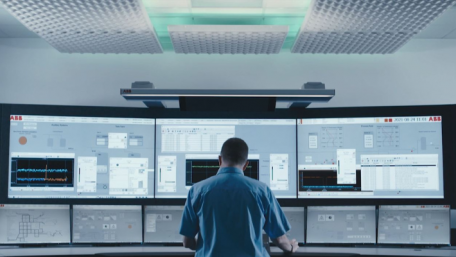
Many worldwide plants are still running the old Advant Controller 450 from ABB in their facility, with many plants using…
Many worldwide plants are still running the old Advant Controller 450 from ABB in their facility, with many plants using the latest System 800xA DCS interfaced with the existing AC450 controller.

Functional safety is the safety of a system and is critical for industries such as medical devices, automotive, railways,…
Functional safety is the safety of a system and is critical for industries such as medical devices, automotive, railways, and machinery. This article will focus on functional safety for machinery and the standards that help its implementation.

Servers are vital to the flow of information in and around organizations, acting as a hub for information transfer and…
Servers are vital to the flow of information in and around organizations, acting as a hub for information transfer and storage. Learn about the role of servers in industry and the potential challenges that come with maintaining them.
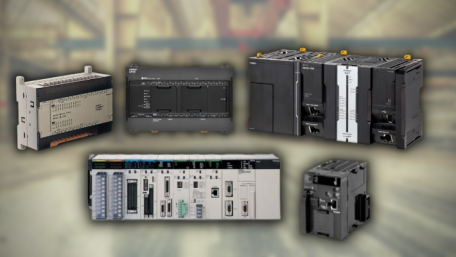
With the first fuzzy logic-based controllers on the market in 1983, learn how the Japanese-born automation company,…
With the first fuzzy logic-based controllers on the market in 1983, learn how the Japanese-born automation company, Omron, adopted fuzzy logic as a basis for the design of its current PLCs.
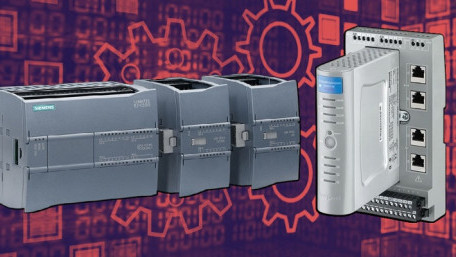
Despite the many overlaps, PLCs and RTUs are two different devices, each with specific suitable applications.
Despite the many overlaps, PLCs and RTUs are two different devices, each with specific suitable applications.
You are bound to encounter two terms associated with sensors and some loads: ‘NPN’ and ‘PNP’. You must understand…
You are bound to encounter two terms associated with sensors and some loads: ‘NPN’ and ‘PNP’. You must understand the relationship between the field device and the control module in order to choose and install components properly when needed.

We'll run through the eight basic steps for implementing a predictive maintenance strategy in your business to improve…
We'll run through the eight basic steps for implementing a predictive maintenance strategy in your business to improve critical asset availability, reduced maintenance costs, and enhanced revenues over time.
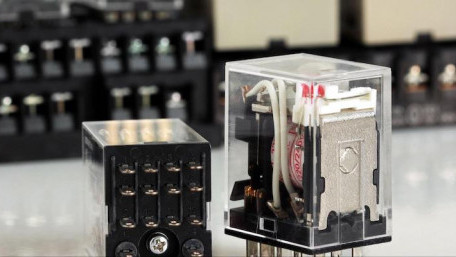
Relay and other coil devices pose a few confusing questions: How can the relay still work if you connect a DC supply in…
Relay and other coil devices pose a few confusing questions: How can the relay still work if you connect a DC supply in reverse? How can an alternating voltage attract and hold the load consistently?

The PCU400 can handle all known industrial protocols and forward them to the master station to get an effective…
The PCU400 can handle all known industrial protocols and forward them to the master station to get an effective connection between the SCADA system and the data from the manufacturing or system process.
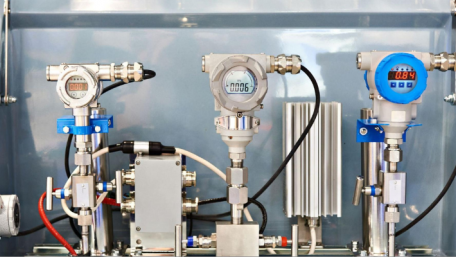
Industrial analog sensor devices primarily use 0-10 volt or 4-20 milliamp. For those mA signals, learn the reasons for…
Industrial analog sensor devices primarily use 0-10 volt or 4-20 milliamp. For those mA signals, learn the reasons for why the lower and upper limit standards were determined as 4 mA and 20 mA.
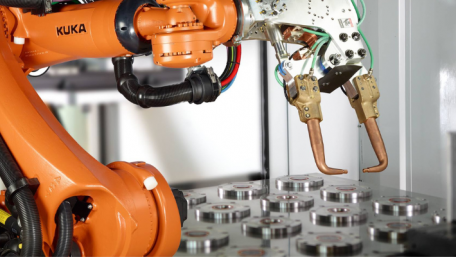
An EOAT, located at the end of an industrial or collaborative robot arm, is entirely customizable with nearly unlimited…
An EOAT, located at the end of an industrial or collaborative robot arm, is entirely customizable with nearly unlimited possibilities. Learn about the five main methods of how EOATs are powered and the sensors that they use.
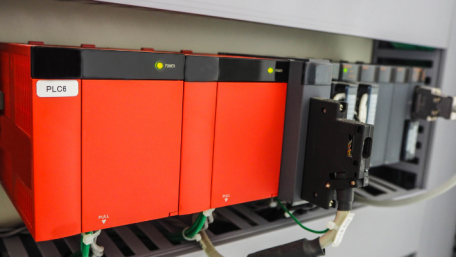
The ability to utilize an array effectively is a fundamental skill in becoming a PLC programmer, but it can also be very…
The ability to utilize an array effectively is a fundamental skill in becoming a PLC programmer, but it can also be very complex and difficult to master. Let’s do a run-down of arrays and some of their complexities!
